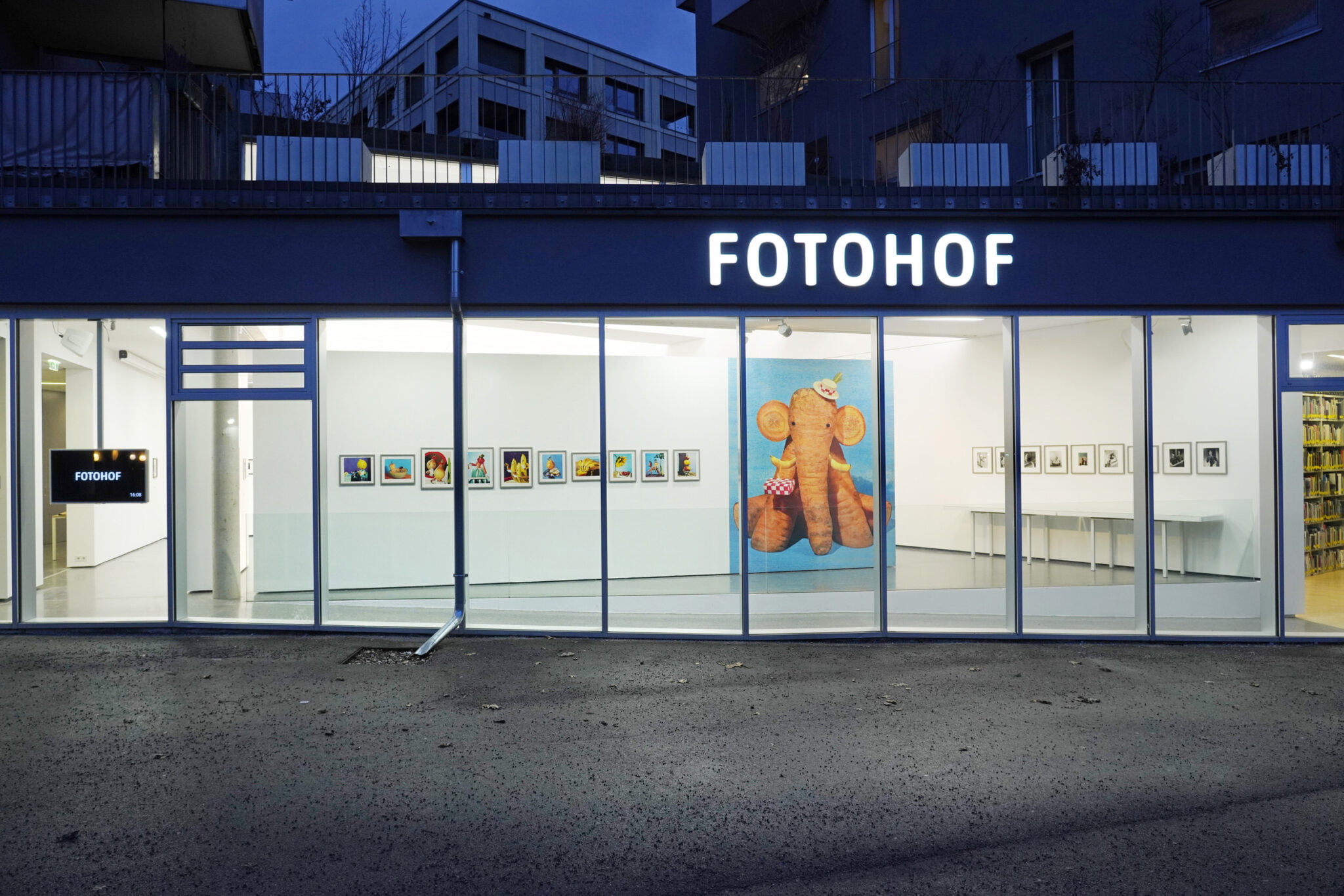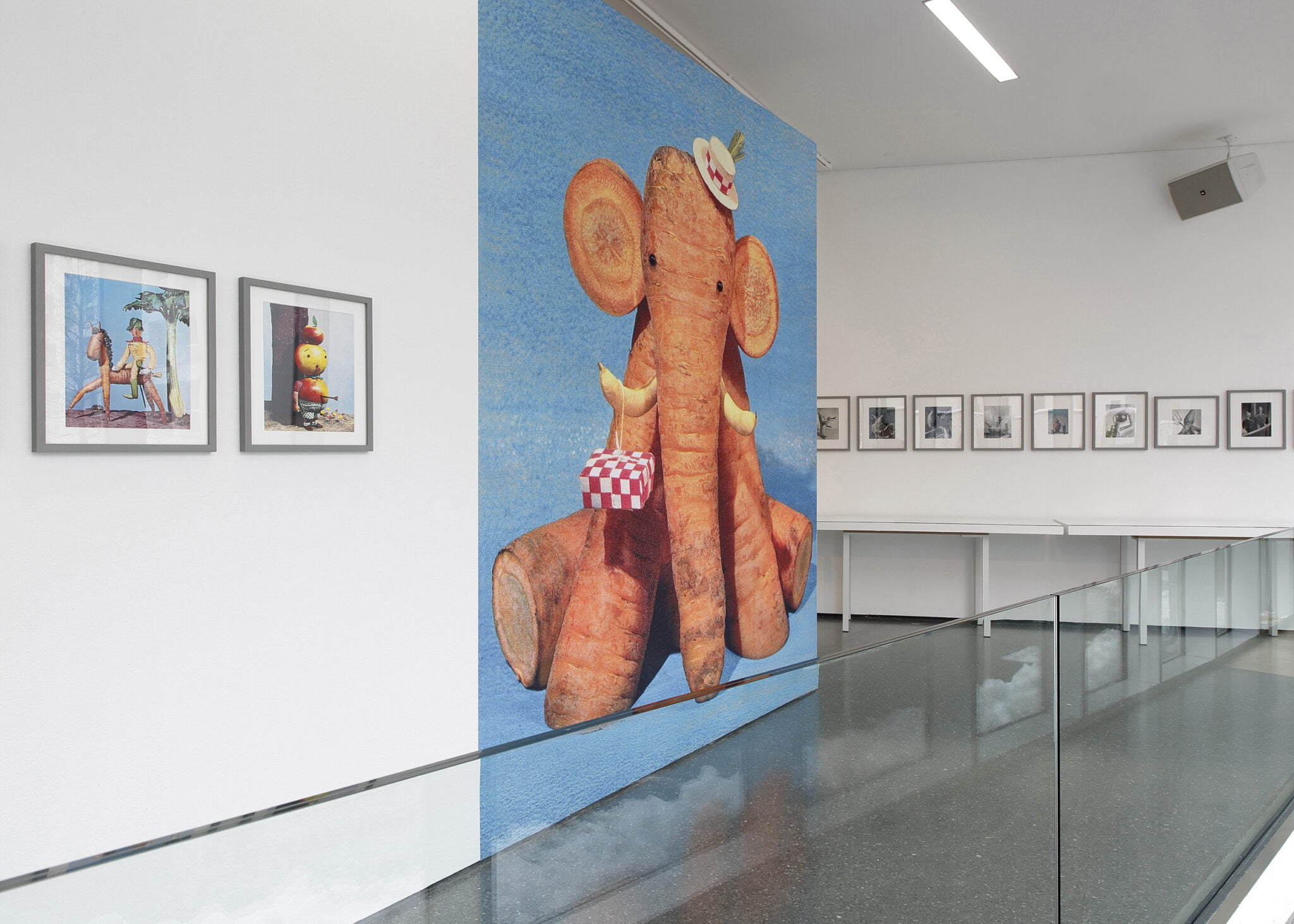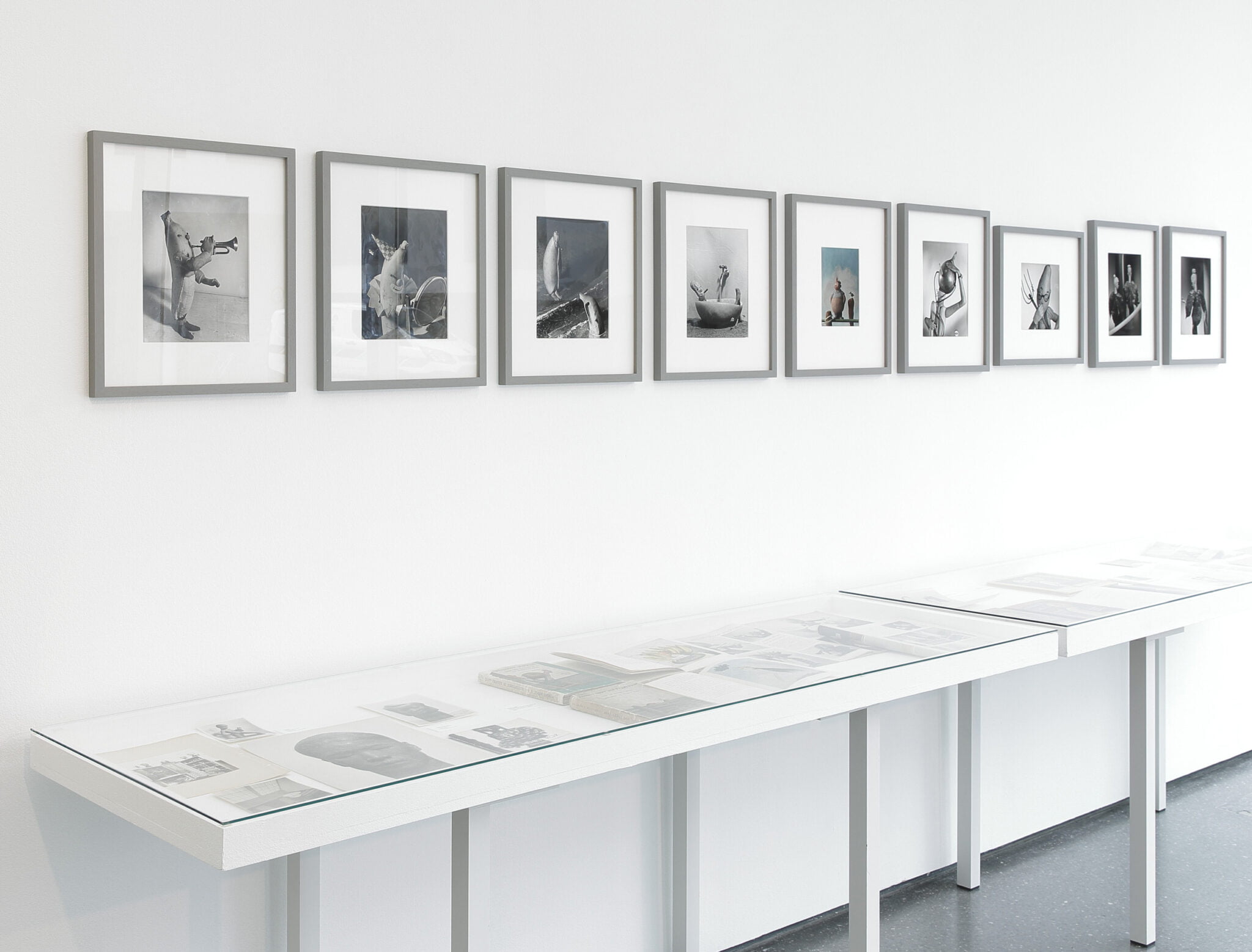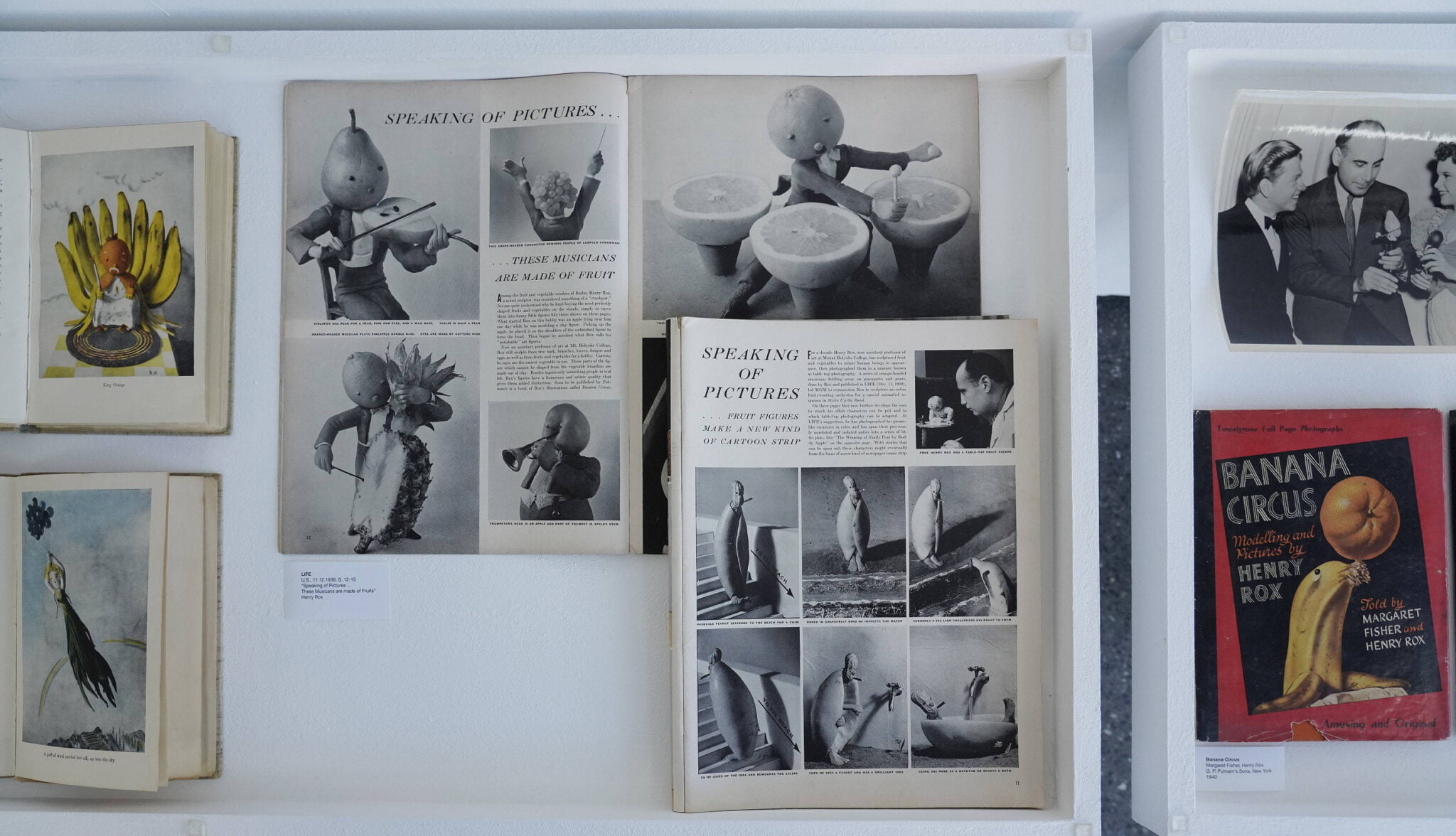Henry Rox
Henry Rox Revue
Annäherungen an ein fotografisches Werk
The “Henry Rox Revue“ combines artistic masterpieces between acrobatics, music and dance with the bizarreness of everyday life – the impossible is captured here in unique photographs. Henry Rox’s photographic imagery is a crazy revue with enigmatic wit and whimsical charm. It plays with disguise and parody and thrives on simple as well as equally imaginative arrangements and stagings, in which he casts the most diverse roles with various fruits and vegetables as the main characters. The few documents, photographs and references to Henry Rox’s work are scattered among many archives and collections in America and Europe. There has not been a comprehensive publication, a detailed classification of his work – Henry Rox (*1899 Berlin – †1967 South Hadley, MA) is a forgotten artist from the mid-20th century. With the exhibition at FOTOHOF – and an accompanying book – Wolfgang Vollmer succeeds in a surprising rediscovery of an impressive artistic position.
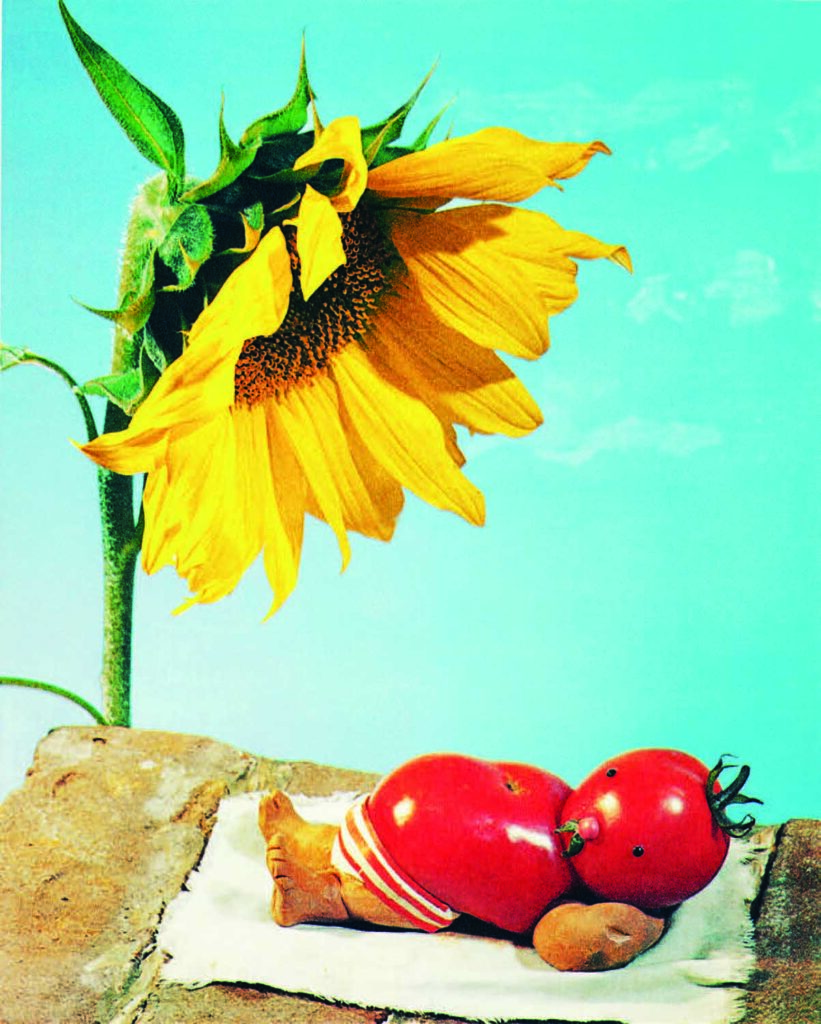
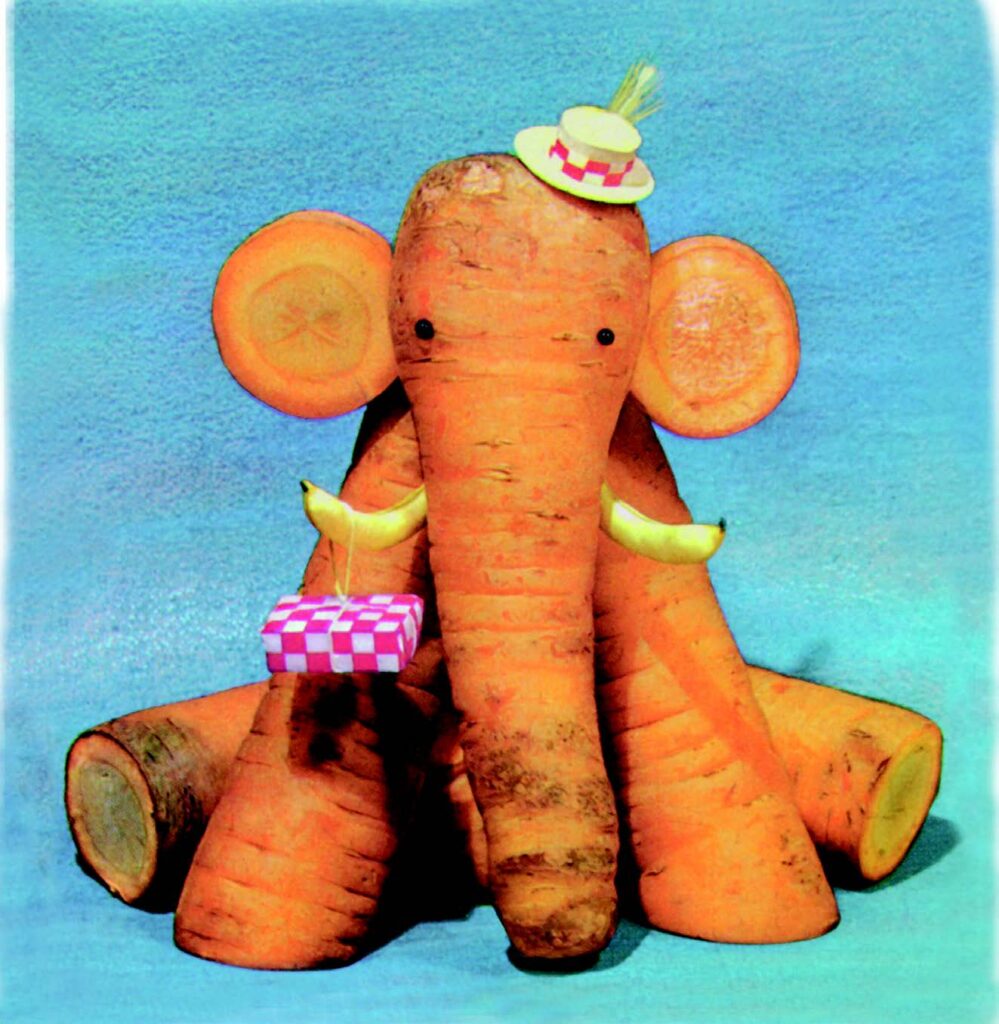
“While searching the Internet for anthropomorphic image motifs, I let myself be guided by an intuition and came across a surprising photo: an elephant, formed entirely from a bunch of carrots. I bought the picture. Now I had a name, Henry Rox, and I kept searching, collecting his photographs, then his books, learning more and more about his life and art. My research, not only on the Internet, but then as it progressed on site in archives in South Hadley (Massachussetts), Glasgow, Berlin and Marbach yielded more and more images – and finally the remarkable story of a pair of artists from Berlin. Henry and Lotte Rox were threatened and persecuted because of their Jewish faith, had to leave Germany in 1934 and tried to build a new existence in America.“ (Wolfgang Vollmer)
